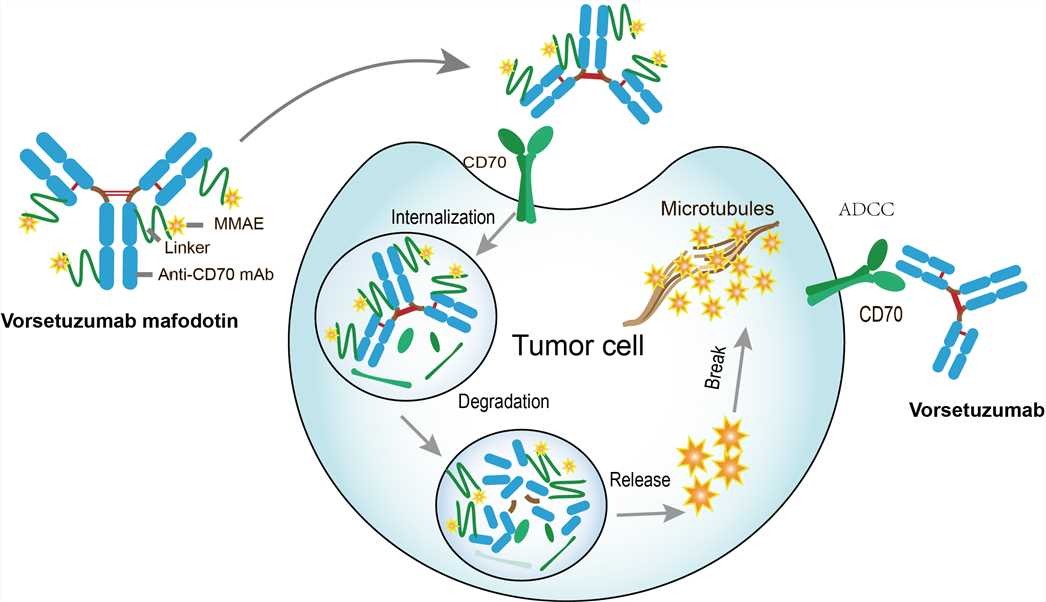Vorsetuzumab Overview
Introduction of Vorsetuzumab
Vorsetuzumab is a humanized monoclonal antibody that specifically recognizes and binds to CD70 molecular. CD70 is a type II transmembrane protein, which is mainly expressed in activated T cells, B cells, natural killer (NK) cells, and dendritic cells. This monoclonal antibody has been investigated in the treatment of autoimmune disorders, inflammation, and plaque psoriasis. Because vorsetuzumab can specifically target CD70 antigen on the cell surface, it is often conjugated with chemical drugs to form specifically targeted drugs for anti-tumor research.
Mechanism of Action of Vorsetuzumab
CD70, also known as tumor necrosis factor receptor superfamily (TNFSF) 7 factor, is a type II transmembrane protein, which plays an important role in the regulation of immune response. The high expression of CD70 is common in a variety of tumor tissues, and the immunotherapy drugs targeting CD70 have been used in preclinical studies. The expression of CD70 on the surface of tumor cells can not only make tumor cells escape immune surveillance and induce apoptosis of immune cells, but also activate some immune cells to kill tumor cells. These effects of CD70 have brought a new direction to the immunotherapy of malignant tumors. A large number of studies have shown that CD70 is highly expressed in lymphoma, renal cell carcinoma, glioblastoma and breast cancer, and other tumor tissues. At present, CD70 is considered to be a new specific tumor marker for renal cell carcinoma. The preparation of specific antibodies against CD70 for tumor immunotherapy is one of the research hotspots in tumor therapy. The study of CD70 specific antibody in tumor treatment has entered the preclinical experimental stage, including in renal cell carcinoma and hematogenous tumors. Anti-CD70 monoclonal antibody not only has a good application prospect in the treatment of renal cell carcinoma but also has a killing effect on other CD70+ tumor cells through antibody-mediated effect. Vorsetuzumab is a monoclonal antibody targeting CD70 and can kill tumor cells through antibody-dependent cell-mediated cytotoxicity (ADCC). In addition, vorsetuzumab can also be conjugated with small molecular antitumor drugs to form a new type of targeted therapeutic molecules with accurate targeting and greater lethality.

Fig 1. Mechanism of Action of Vorsetuzumab
For research use only. Not intended for any clinical use.
This site is protected by reCAPTCHA and the Google Privacy Policy and Terms of Service apply.

